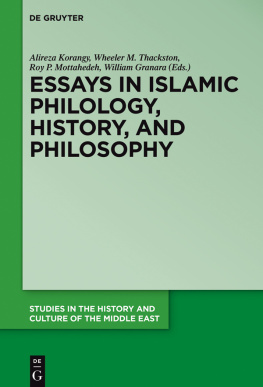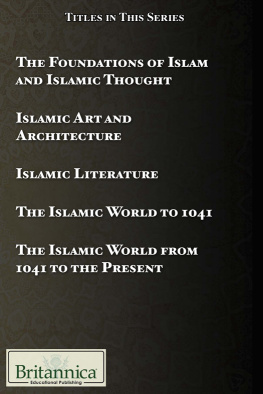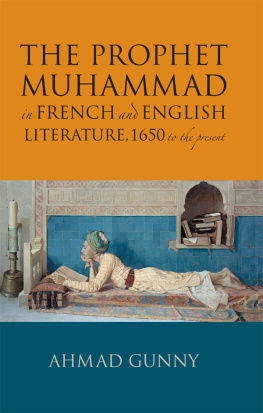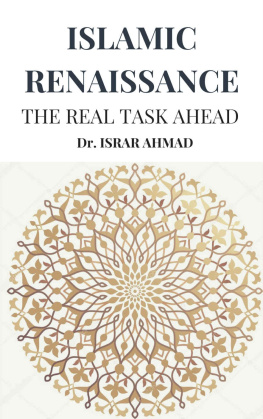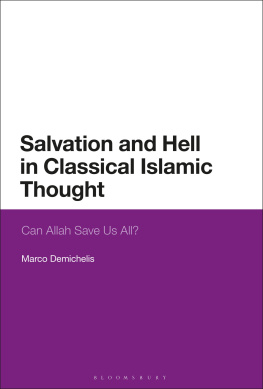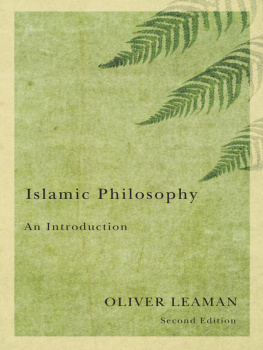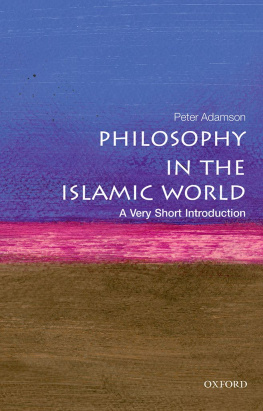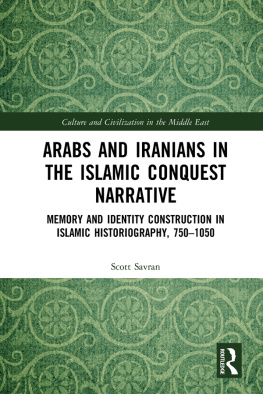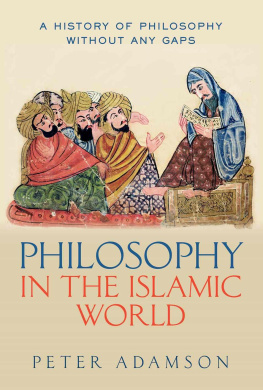A CIP catalog record for this book has been applied for at the Library of Congress.
The Deutsche Nationalbibliothek lists this publication in the Deutsche Nationalbibliografie; detailed bibliographic data are available on the Internet at http://dnb.dnb.de.
A festschrift presented to our beloved teacher, mentor and friend Professor Ahmad Mahdavi Damghani on the occasion of his 90 th Birthday.
Acknowledgments
This volume of essays honors Professor Ahmad Mahdavi Damghanis long and distinguished career as a teacher and a scholar. It is a product of the admiration, not only of the editors but, more importantly, of all the contributors who so diligently met our many deadlines and demands. Therefore, we would be remiss not to thank first the contributors, who took time out of their busy schedules to commemorate the accomplishments of one of their teachers. Their contributions serve as a reminder to all in the academy of the importance of such volumes, both for generating rigorous scholarship, and for providing a platform from which to appreciate effective and affecting pedagogy. We would like to thank each and every one of them for their scholarly spirit and their patience throughout the editorial process. We would also like to thank the Center for Middle Eastern Studies at Harvard University for having afforded the contributors to this volume the chance to have Professor Mahdavi as their teacher and mentor during their studies at Harvard (with the exception of Lynda Clarke, who was advised by Professor Mahdavi through the Middle East Center at the University of Pennsylvania). To the peer reviewers of this volume a sincere note of gratitude is due as well. Their attention to detail was instrumental to this projects timely completion. We owe a debt of gratitude to Jason Eversman for his careful copy editing and his willingness to go above and beyond the call of duty. Many thanks go to Dr. Gertrud Grnkorn of Walter De Gruyter whose patience, constant encouragement and help in every step of this books production made our concept a reality. We also like to thank the editors of the present series (Studies in the History and Culture of the Middle East), Stefan Heidemann, Gottfried Hagen, Andreas Kaplony, and Rudi Matthee for their helpful editorial comments and recommendations regarding all aspects of the final manuscript. Finally, I would like to thank Professor Mahdavi, who has been a source of inspiration for so many of us, always humbly, selflessly, rigorously, and kindly.
Alireza Korangy, et al.
September 2015
Alireza Korangy
Introduction
This volume was initiated by soliciting contributions primarily Professor Mahdavi has had a significant influence on a great many Ph.D. students and others at different stages of their studies in different universities. He has taught and advised at Harvard University, the University of Pennsylvania, and a number of Canadian, Iranian and European universities. Many of his former advisees and students are now established scholars in Islamic studies and its broader fields such as Arabic language and literature, Iranian and Persian languages and literatures, Islamic Jurisprudence, Islamic history, and Islamic theology. This volume brings together a small group of Professor Mahdavis former Ph.D. students to commemorate his influence on the fields to which he has dedicated himself as a teacher and a scholar for over sixty years and presents him with a small token of their appreciation for his ninetieth birthday in 2016.
Ahmad Mahdavi Damghani was born on September 5, 1926, in Mashhad to Ayatollah Muhammad Kazim Mahdavi Damghani and Siddiqa Mahdavi Damghani. At a very young ageonly five years old, in factProfessor Mahdavi undertook the task of memorizing the Quran and he accomplished that task by the age of six. At the age of fourteen he was sent to the Hauza-i Ilmiyya of Mashhad, where for five years he studied under the supervision of some of the most prominent scholars of the Arabic language and linguistics, Islamic theology, Islamic philosophy, and Islamic jurisprudence in Iran. The first of these teachers was Shaykh Muhammad Taqi Nishaburi, also known as Adib-i Duvvum, who was in turn the student of the legendary Shaykh Abd al-Jawad Nishaburi, known as Adib-i Avval and also as Adib-i Mutlaq. Professor Mahdavi was a classmate of the Grand Ayatollah Hajj Sayyid Ali Sistani and he often reminisces about the time they studied Kitb-i al-Mughn wa al-Muawwal dar arf wa Naw wa Man va Bayn , Shar-i Nim dar arf , and Shar-i Manma-i Sabzavr in philosophy and logic with Shaykh Muhammad Taqi Nishaburi, Shaykh Hasan Shams al-Vaizin, and Shaykh Sayfullah Aysi, respectively. His other studies of philosophical treatises were under the tutelage of Mirza Abu al-Qasim Ilahi and Shaykh Muhammad Rawhani with whom he delved into Shar-i Shamsiyya dar Maniq . He also studied fiqh and usul with Sayyid Mahmud Razavi Kaini, Shaykh Muhammad Reza Turabi, and his own father Ayatollah Kazim Mahdavi Damghani. These early pedagogical experiences were the auspicious beginnings of his education in rhetoric, linguistics, and philology.
In 1945, Professor Mahdavi matriculated at the University of Tehrans division of theological studies ( Ilahiyyat ). While pursuing his bachelors degree, he also intermittently attended hundreds of seminars by many of the established Islamic scholars of the time, some of whom were in Qom, not far away, and some of whom came to Tehran to hold private seminars. In 1948 and 1949, Professor Mahdavi studied Kitb-i Mib al-Uns dar Taawwuf with Ayatollah Ruhollah Khomeini in Qom. In those same years, he studied usul with Hajj Shaykh Muhammad Ali Hairi Kirmani. Between 1953 and 1955, he further studied fiqh under the tutelage of Hajj Shaykh Muhammad Taqi Amuli. These extracurricular seminars shaped Professor Mahdavis future scholarship and approach to pedagogy as much as his formal education.
He names the following individuals as his most important influences: his father, Ayatollah Kazim Mahdavi Damghani, Badi al-Zaman Furuzanfar, Badi al-Zamani Kurdistani, who was known as a walking encyclopedia of Arabic texts and with whom he studied Arabic literature for twenty-five years, ), Ayatollah Shaykh Muhammad Baqir Ayatullahzada Mazandarani, Ayatollah Shaykh Muhammad Salih Allama Hairi Simnani, and Ayatollah Muhammad Kazim Mahdavi Damghani, who was also a teacher to Hajj Sayyid Ali Sistani from 1956 to 1958.
He studied divinity with Furuzanfar for three years and literature for seven. His studies with him have left a unique impression on Professor Mahdavi. It is a fact that no one has had more schooling from Furuzanfar than Professor Mahdavi, and regardless of how prodigious the extent of his own publishing and his own accomplishments, he considers his greatest accolade the recognition that Furuzanfar bestowed on him on page 69 of his Shar-i Risla-i Qushayriyya , when the teacher referred to his student as my most learned friend. This level of respect for mentors long gone reminds one of these immortal lines in Sads Gulistn :

